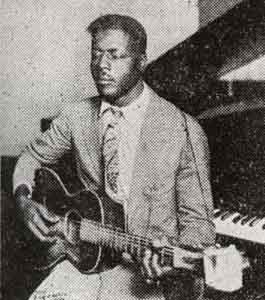Blind Willie Johnson was one of the most influential blues and gospel musicians of the early 20th century. Known for his powerful voice, distinctive slide guitar technique, and deeply spiritual lyrics, Johnson’s music continues to inspire generations of artists across various genres. Despite facing immense hardships throughout his life, his recordings have left an indelible mark on American music history.
Early Life and Blindness
Blind Willie Johnson was born on January 25, 1897, in Pendleton, Texas. Details of his early life remain scarce, but it is widely believed that he lost his sight at a young age. One of the most accepted accounts suggests that he was blinded when his stepmother threw lye into his eyes during a domestic dispute. Regardless of the cause, his blindness did not deter him from pursuing music, and he quickly developed exceptional skills as a guitarist and singer.
Musical Career and Style
Johnson’s music was a fusion of blues and gospel, a blend that set him apart from many other musicians of his time. He primarily played the slide guitar using a knife or bottleneck, creating a raw and emotional sound. His deep, gravelly voice, often accompanied by his wife Willie B. Harris, brought a unique intensity to his recordings. His songs reflected deep religious conviction, with lyrics that often drew from biblical themes.
In 1927, Blind Willie Johnson recorded his first tracks for Columbia Records. These recordings included some of his most well-known songs, such as “Dark Was the Night, Cold Was the Ground” and “Jesus Make Up My Dying Bed.” The former is considered one of the most haunting blues instrumentals ever recorded and was even included on the Voyager Golden Record, which was sent into space aboard the Voyager spacecraft in 1977 as a representation of human culture.
Legacy and Influence
Although Johnson recorded only 30 songs between 1927 and 1930, his influence on American music is profound. His works have been covered and reinterpreted by artists such as Eric Clapton, Led Zeppelin, and Ry Cooder. His ability to convey deep emotion through both his voice and guitar playing has made him an enduring figure in blues and gospel music.
Despite his musical contributions, Johnson struggled financially for most of his life. After the Great Depression and the decline of interest in blues recordings, he faded into obscurity. In 1945, he died in Beaumont, Texas, after contracting pneumonia. Some reports suggest that he was left in a rain-soaked house after his home burned down and was denied proper medical care due to his race and financial status.
Conclusion
Blind Willie Johnson’s story is one of resilience, faith, and musical brilliance. Though he never achieved great wealth or widespread recognition in his lifetime, his recordings have stood the test of time, continuing to move listeners with their raw emotional power. His legacy lives on, not only in the blues and gospel traditions but also in the stars, as “Dark Was the Night, Cold Was the Ground” drifts through the cosmos as a testament to the depth of human expression.


Comments are closed